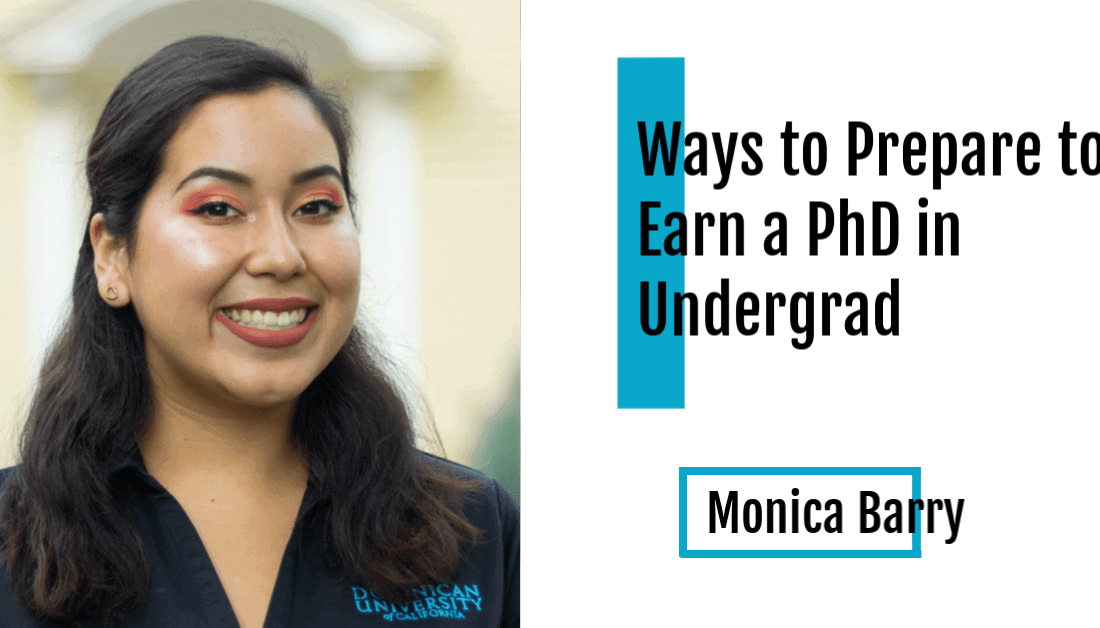Ways to Prepare for a PhD in Undergrad
Since beginning my college career in the fall semester of 2016, I knew I wanted to pursue graduate school. However, I always envisioned applying to a master’s program first, and then potentially moving toward a PhD afterwards. After spending a semester at the University of Oxford, my entire academic future shifted. I fully realized my passion for European history, knowing it was something I wished to pursue in graduate school. In addition, I gained a better understanding of what a PhD program truly entailed. Earning a PhD directly after my undergraduate career became incredibly appealing to me. I learned from colleagues of the benefits of fellowships, along with the convenience of earning both a master’s and a PhD within the same program. After returning to the States, I sat down with my academic advisor ready to begin the road to graduate school. Thus, my search for graduate programs commenced.
In the past year, I have learned so much more about the process of applying to PhD programs while still completing an undergraduate degree. I’ll be honest; it’s not easy, yet it is achievable. I wish to share with you my story, my process, and my tips from start to finish of application season.
Talk to your academic advisors early:
My first piece of advice is to start the process ASAP. Whether you’re a freshman or in your final year of college, the sooner you start, the better. I remember sitting down with my academic advisor after returning from England in my second semester of junior year. He told me to take the GRE as soon as possible, to begin my list of programs, and to begin thinking of my proposed dissertation topic. While it may be overwhelming to hear at the start, the sooner you begin the process, the less stress you’ll find yourself carrying towards the end. Remember, you can always change your mind. Beginning the process does not mean you are “married” to your dissertation topic in any regard; simply get the ball rolling in the right direction.
Finding the right programs:
The first step I recommend taking is to formulate a list of programs that interest you. Whether you begin your search by region, by school, or by faculty, having a list to work with is very helpful. Look for program requirements, program funding, average duration, key professors and faculty, and application fees. You may find that some PhD programs are more appealing than others. My list changed constantly in my first few months of the process. Another major tip I have for you is to set a deadline for your list. It is very easy to get caught up in this first step as you look at new programs each day. By the end of September, I sat down, finalized my list, and told myself to move to the next step. I wrote each school’s name on my whiteboard with the application deadline in red ink. That list has remained the same ever since, and I’m very proud of it.
Taking the GRE:
This one hits close to home, as I just completed my second round of GRE testing on the same afternoon I wrote this article. The GRE is a standardized test that is required for most programs, but not all. It is important to take a look at your individual program’s requirements. Some schools will list the GRE as a requirement for their graduate school, yet the application to a specific PhD program will reveal that it is not required. Take note of these to ensure you’re saving time and money if you don’t need to take the exam. However, if you’re applying for a PhD, odds are that you will have to test. My biggest advice is not to overthink it. Standardized testing has always been a struggle of mine, and the GRE seemed to be a big, daunting task in my road to grad school. Once I broke down my study guides (Kaplan and Quizlet will be your best friends), I realized that I already had all of the tools I needed to succeed on the exam. It truly is a test of reading, comprehension, and analysis. In one study guide, the “day before test day” chapter emphasized the importance of staying calm. It said to think of the exam as a way to show graduate programs how great you are and to show off your strengths. With this mentality, the GRE is not as daunting as it may appear in the beginning of your grad school process.
One final note on the GRE: Testing during the academic semester isn’t fun, but it can be done. I took my tests in October and November of my senior year. While I would suggest taking it sooner, such as over the summer before senior year begins, I still had plenty of time to take the test twice before my graduate school deadlines approached. The key is—as you probably know—time management. Treat your GRE study time as a job; block out 2-3 hours in the library JUST for GRE material. Try to separate it from your coursework as much as possible; that helped me tremendously.
Asking for Letters of Recommendation:
I encourage you to ask for your letters of recommendation as soon as possible. The more notice you can give your recommenders, the more they will appreciate it. To be honest, I asked my recommenders before finalizing the list of programs I was applying to. And that’s perfectly fine. Keep your recommenders updated on your journey; share with them your writing samples and let them know both when you decide on new programs and when you will be taking the GRE. If you ask the right people, you will truly see how much they care about your academic success. My professors have supported each decision I’ve made thus far and guided me forward when I began to get lost in the big picture. It is far too easy to get overwhelmed as you think of the big, daunting task of applying to PhD programs while still in your undergraduate degree program. I have had many days where I did not know where to begin to further my progress: Do I study for the GRE? Do I begin the application itself? Do I work on my statement of purpose? Your recommenders are there to guide you, support you, and keep you on track. To my own recommenders: If you’re reading this article, I cannot thank you enough.
Confidence:
Confidence is a huge factor in this process. I often find myself doubting my abilities and saying I won’t get into any PhD programs. With a negative mindset, the process becomes so much harder. Not to be cheesy, but confidence is truly key in this process. Applying to these programs and balancing work and school is a lot for anyone. Be kind to yourself; allow for days off, and take time to relax with friends. The road to graduate school changes constantly, and you must learn to be okay with the evolution of your path. Life has a way of overwhelming you at once. Having confidence in yourself and your capabilities will greatly enhance your productivity toward achieving your goal.
No matter what happens, remember that PhD programs will always be there. If you do not get into the program of your dreams, know that you can apply again the following year. Be proud of all you accomplished during your final year of undergrad. You had the strength and motivation to complete the PhD application process, all while juggling upper-division coursework. And that’s something to be proud about regardless of the end result.
Meet our Ambassadors!
If you are interested in getting involved in our Student Ambassador program, contact Erin Pettus at erin@collegesofdistinction.com.
Learn More About Dominican University of California:
Dominican University of California’s mission is to educate and prepare students to be ethical leaders and socially responsible global citizens who incorporate the Dominican values of study, reflection, community, and service into their lives. The University is committed to diversity, sustainability, and the integration of the liberal arts, the sciences, and professional programs




